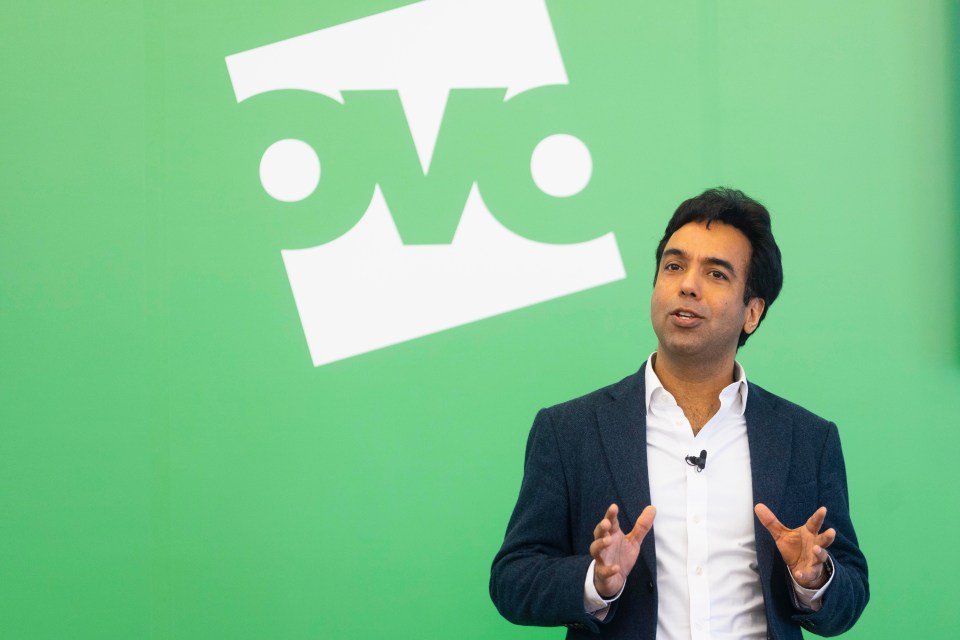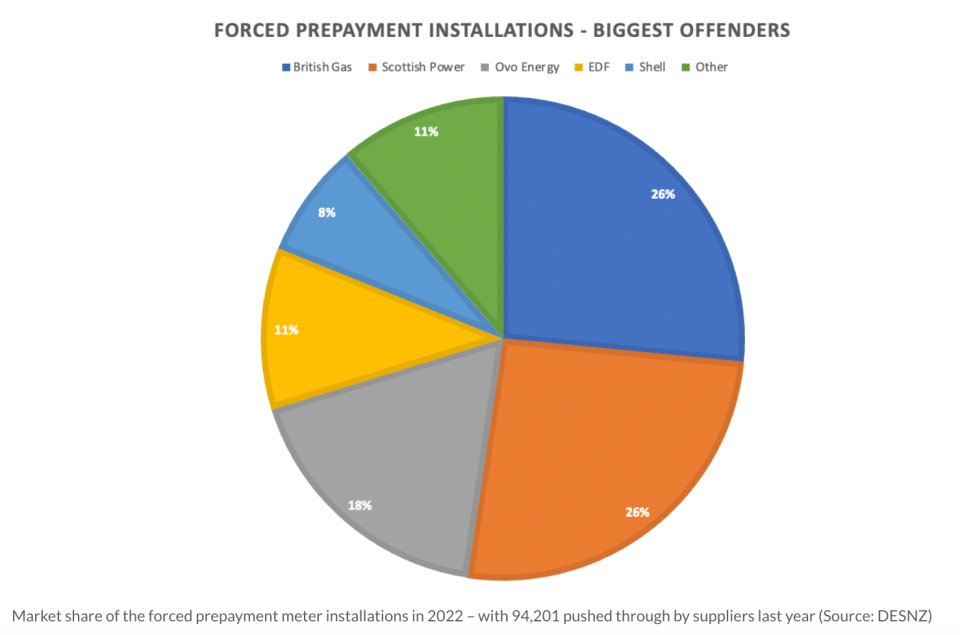Interview: Ovo Energy’s boss bets on green future to cement Big Six status

Ovo Energy’s future as one of the Big Six suppliers was under threat last year, after it reportedly found itself on the regulator’s watch list for nationalisation.
The company warned that soaring wholesale gas prices following Russia’s invasion of Ukraine gave rise to a “material uncertainty” which “may cast significant doubt on the company’s ability to continue,” in a submission to Companies House last September,
But the government’s energy support packages for businesses and households eased the costs suppliers were shouldering, and helped spare Ovo from the same dismal fate that met 30 other energy firms across the UK.
Following a challenging winter, the company is on the rebound, now in line as a potential suitor to buy Shell’s household energy business, which consists of 1.4m customers.
In an exclusive interview with City A.M., chief executive Raman Bhatia declined to comment on what he labelled “speculation”, but did set out his vision to re-establish the firm as the leading renewable electricity supplier in the domestic market.
“We plan to have a long run,” he said. “We want to help customers onto this path to net zero. If we can help more customers, the better.”
This week Bhatia unveiled a new “Path to Zero” offering for customers at his first public speech as chief executive, focused on energy efficiency and smart technology, reigniting the supplier with a sense of mission.
Ovo, however, is not alone in bolstering its green products.
Good Energy is expanding solar panel installation services, while Octopus is honing in on heat pumps.
However, its decision to ditch renewable energy guarantees of origin, or REGOs – the industry standard certification scheme for deeming products to be 100 per cent renewable – separates the firm from its rivals, with Ovo regarding such approvals as worthless compared to practical measures to reach net zero.
Ovo’s approach has been backed by Friends of the Earth, Ethical Consumer, and Energy Saving Trust, boosting the group’s environmental bona-fides.
Bhatia was confident the new drive and offering will “resonate with customers” and hopes it will start an industry discussion around pushing for offering more green energy solutions.

“I will take a team sport analogy around decarbonisation,” he said. “I would be very happy if there is convergence on some of the good ideas because climate change is a shared agenda. Not just in the UK, actually, it’s a global shared agenda.”
The supplier’s latest crusade against greenwashing signals a more confident outlook from Ovo following the energy crisis, but it has not been without scandal or setbacks in recent years.
Ovo forked out £11.7m in redress payments in 2020 and 2021 for under and overcharging customers, but it is unclear whether it has learned its lesson after hundreds of customers got hit with hiked bills this week following glitches in its prepayment meters.
More recently, the government reported that Ovo was one of the three biggest users of controversial forced prepayment installations in 2022, making up 18 per cent of forced installations.
The issue has been brought into the spotlight after an investigation by The Times revealed British Gas used third party operators to install prepayment meters at vulnerable households.
“For many customers prepayment metres offer the right solution to stay on top of their financials,” Bhatia said.
“I think they need to be used only with the right safeguards.”

Nevertheless, he made it clear that Ovo endorsed Ofgem’s new code of conduct for prepayment meter installations announced this week, which includes banning their use for over 85s living alone and requirements for suppliers to make at least 10 attempts of contact before turning to courts for enforcement.
“Now, going forward, I think it’s about working with the sector to make sure that code of conduct is genuinely implemented. Ovo’s position is clear. We are already doing most of that,” he said.
However, he said the real issue, or culprit even, in this instance is the country’s over reliance on fossil fuels.
“Let’s just cut to the heart of the matter, which is behind all of this: energy bills, affordability, customer affordability. There’s a direct link you can draw between affordability and our reliance on fossil fuels,” Bhatia said.
Prepayment meters and powering the UK’s green future are just some of the many industry challenges Bhatia will be forced to grapple with as he looks to maintain Ovo’s rank as one of the UK’s top energy suppliers.